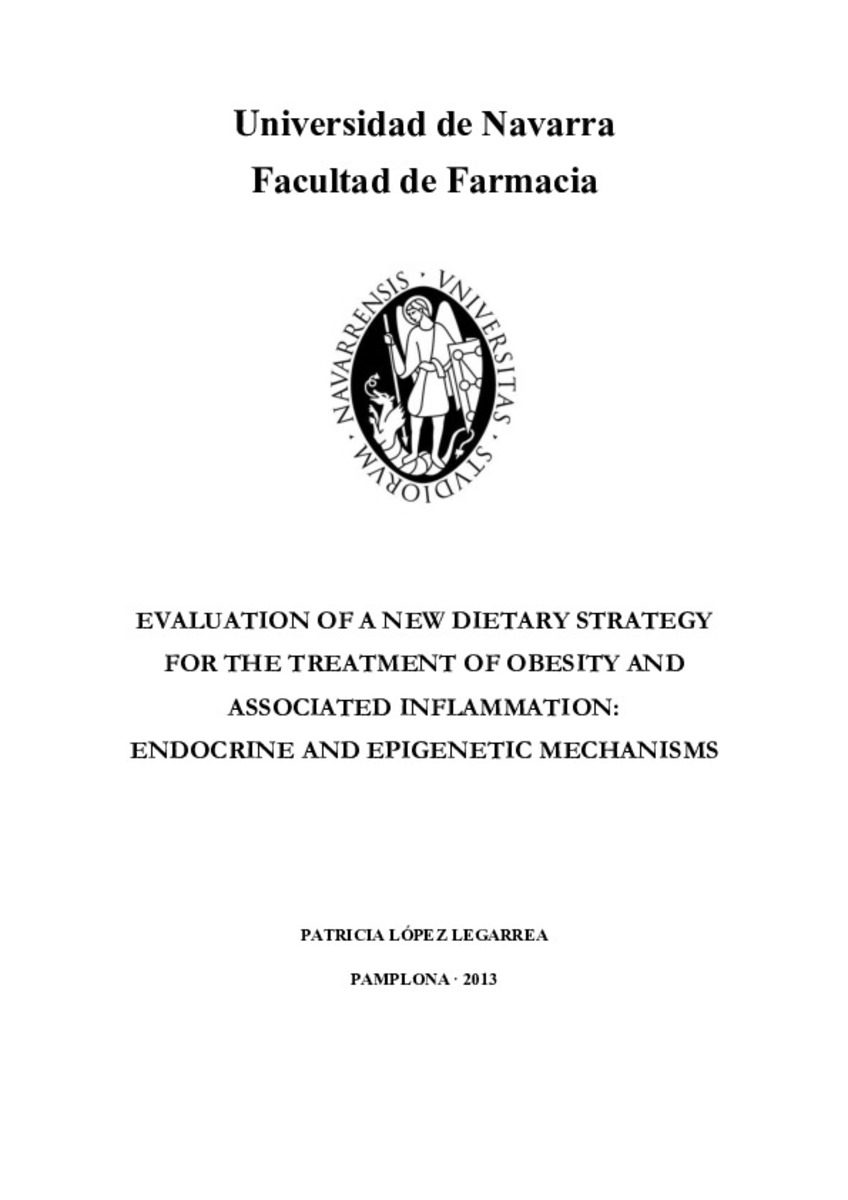Evaluation of a new dietary strategy for the treatment of obesity and associated inflammation: endocrine and epigenetic mechanisms
Keywords:
Inflammatory markers
Macronutrient distribution
Energy restriction
Metabolic syndrome
Materias Investigacion::Farmacia
Metabolismo energético
Defense Date:
18-Oct-2013
Publisher:
Servicio de Publicaciones de la Universidad de Navarra
Citation:
LÓPEZ LEGARREA, Patricia. “Evaluation of a new dietary strategy for the treatment of obesity and associated inflammation: endocrine and epigenetic mechanisms”. Martínez, A. y Zulet, M.A. (dir.). Tesis doctoral. Universidad de Navarra, Pamplona, 2013
Statistics and impact
0 citas en

0 citas en

Items in Dadun are protected by copyright, with all rights reserved, unless otherwise indicated.







